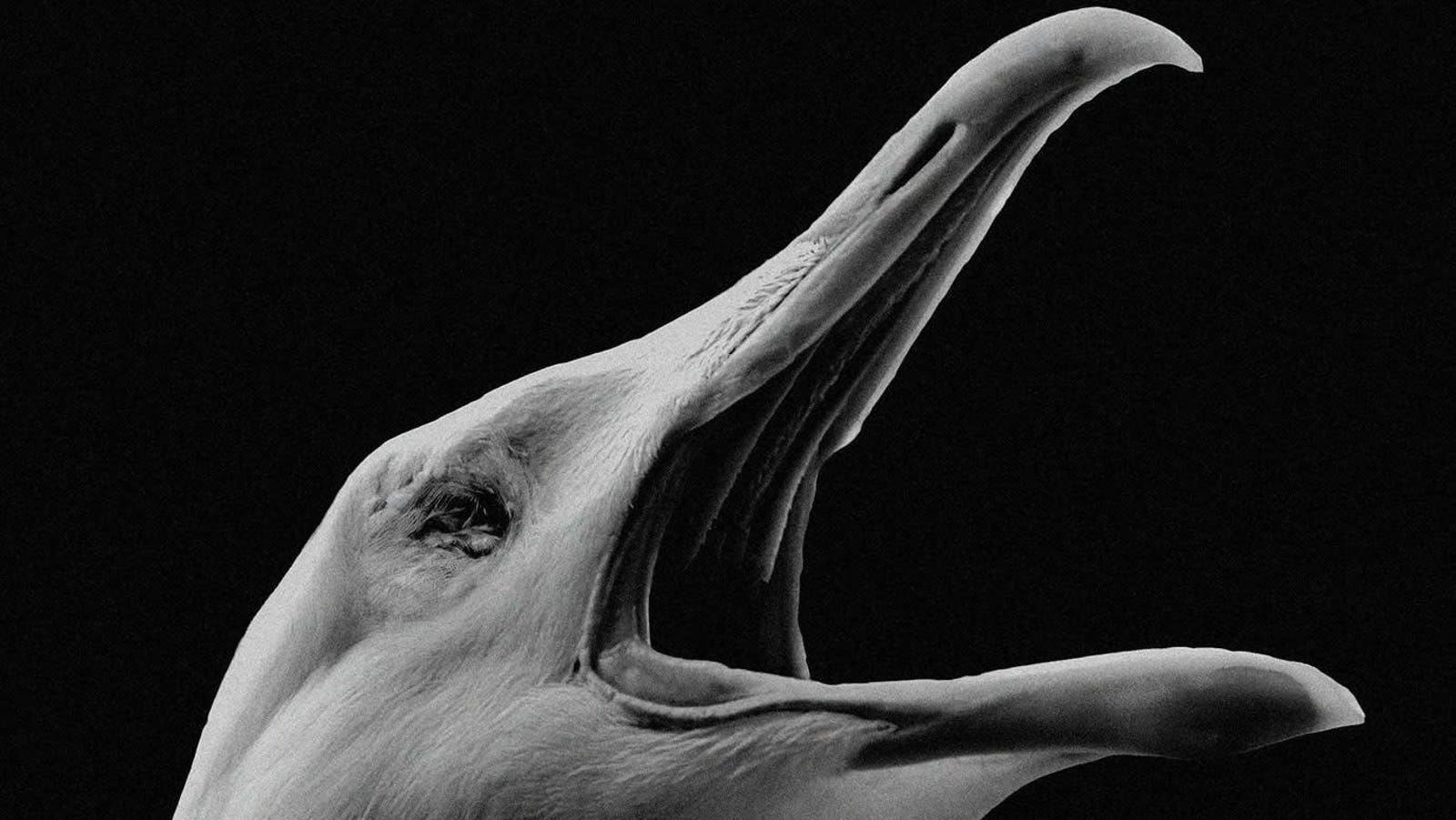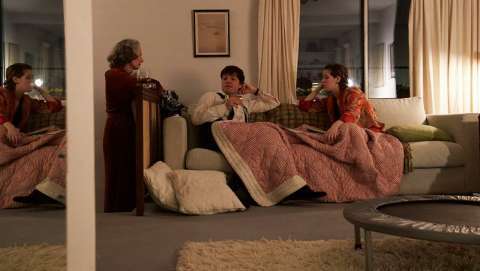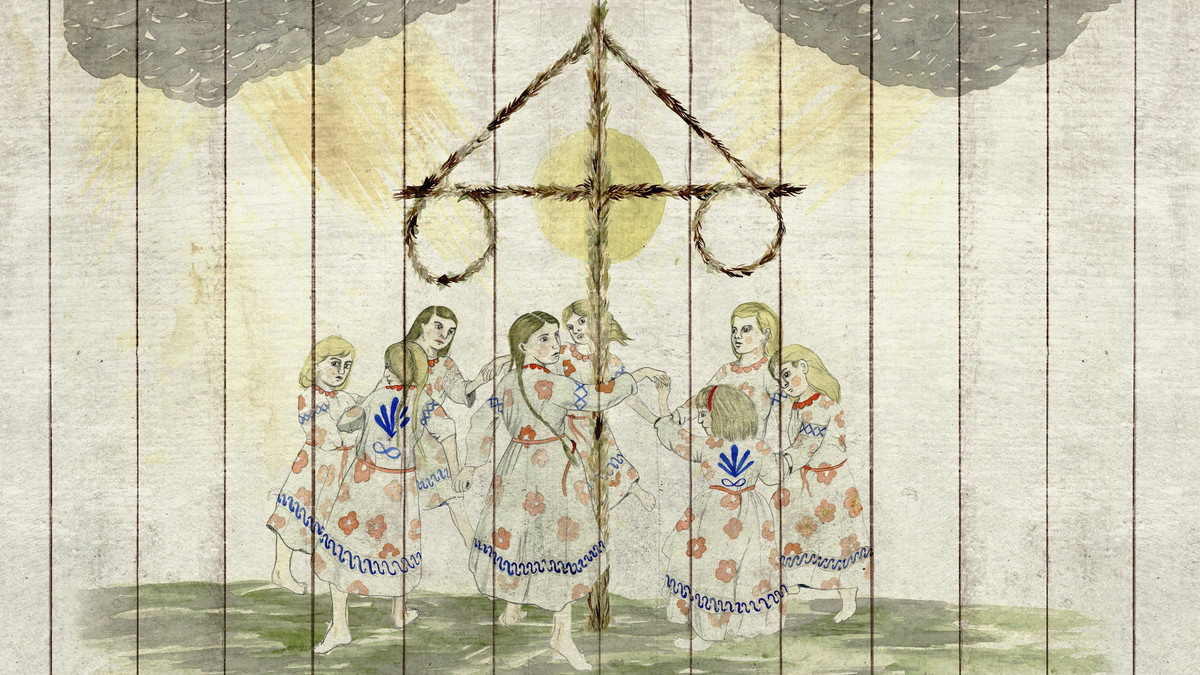‘The Lighthouse’ is a manic maelstrom of emotions; as the credits began to roll, I could hear the theatre both catching their breath and laughing in exasperation, everyone taking a moment to assess the distinctly disturbing melodrama we had all just encountered. Robert Eggers has created a chaotic, isolated world – two hours spent immersed inside a dusty, surreal, half-forgotten nightmare. Distinctly disturbing, for two hours, you are also a ‘player’ in Eggers’ game, living alongside the main characters Thomas (Willem Dafoe) and Wilmslow (Pattinson) – trapped in an inescapable psychosis, alone on an island, isolated by a storm and grappling with their mundane new life.

There is certainly a timeless feeling to this story, with more than a hint of a Greek tragedy and influences from folk tradition; the first that come to mind are Coleridge’s The Rime of the Ancient Mariner, and Edgar Allan Poe’s The Raven, with the idea of nature taking retribution for past deeds and nature being used as a foil to masculinity – both stories use a bird’s presence as a mirror to their declining sanity. The seagull which haunts Winslow literally taps on his window while he sleeps, a seemingly intentional nod to Poe’s Raven ‘rapping on [his] chamber door’.

In fact, Eggers echoes Coleridge’s use of language in the confusing dialect of Dafoe’s Thomas’. (His sometimes-indistinguishable anecdotes remind me of when I’ve met distant cousins from very rural parts of Ireland who almost need subtitles in the unintelligible nature of their stories.) Certainly, it is in Thomas’ conflicting almost mythological stories and general unbearable nature that begins Winslow’s descent into madness. We see the story largely through Winslow’s eyes, and as an effect of that we see the demands to be cruel and belittling, his stories boring and relentless, and his version of events false. It is left deliciously ambiguous as to how much of the events of the story are truthfully as we see it, or whether we are seeing things through the perspective of an increasingly unstable man.
The narrow aspect ratio is used to great effect; it never feels gimmicky, and both adds to the otherworldly, archaic feel of the story, and frames the story in a way which adds to the sense of entrapment and claustrophobia as the storm closes in.
/cdn.vox-cdn.com/uploads/chorus_asset/file/19289626/lighthouse6.jpg)
The entire film feels like a Gustave Dore etching, carved out of darkness rather than light. Each angle so carefully framed, with chiaroscuro and over-exaggerated facial movement from Pattinson that seems to hark lovingly back to early cinema. The score is unsettling, the darkness is bold in the way it permitted to completely swallow some scenes.
Something has to be said for the screenplay, which slowly unravels as Winslow’s mind does; the film feels dragged out and disorientating at times, but this only adds a connection between the audience and the ‘players’ (as they are credited) – Defoe’s Thomas speaks in a cryptic, mythological way at times, harking to a long bygone era which makes the whole experience feel all the more distanced and nightmarish. The two lead characters have a conflicted relationship, toying with each other’s sanity, withholding and revealing elements of their truths, and in the same way that they can no longer trust how much time has passed and what is true, the audience begins to feel the same way – disorientated, and removed from the outside world. Leaving the cinema, it felt strange to so quickly find myself back in the real world; to see colour after being so completely absorbed by this black and white world.
Just as the characters did, I had no idea of how much time had passed, and it left me itching to see what Eggers will create next.






